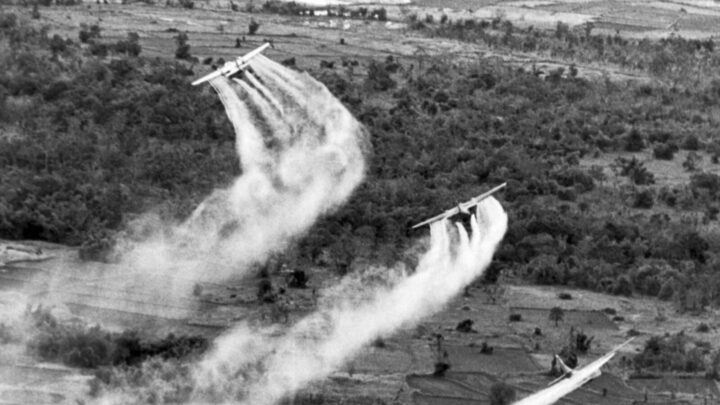
The fight isn’t over yet for some Vietnam veterans after a new study found those who were exposed to Agent Orange during the war are nearly twice as likely to be diagnosed with dementia later in life.
The US study of more than 300,000 veterans from the Vietnam War era revealed that even after adjusting for medical and psychiatric variables, those who were exposed to the chemical spray, had almost double the risk of developing dementia than those without exposure. They also developed dementia at a mean average of 1.25 years earlier than others.
Agent Orange is a defoliant chemical spray made up of two herbicides, 24-D and 245-T, kerosene or diesel fuel as well as an extremely toxic substance, dioxin. The mixture was named after the orange stripe that appeared on the drums it was carried in when transported to Vietnam.
US troops used the spray to defoliate large areas of the Vietnam jungle to expose their enemies who sheltered under the thick canopy. It was also used a tactic to destroy food sources for the Viet Cong, obliterating crops and making large areas of soil unsuitable for growth.
Australian troops were also exposed to the chemical during the war with concerns over its lasting effects first emerging in the 1970s when Australian veterans started reporting high instances of cancer and abnormalities in newborns, both of which were blamed on Agent Orange.
Previous research has found that Agent Orange exposure is linked to an increased risk of neurologic disorders such as Parkinson disease, metabolic disorders such as type 2 diabetes and systemic amyloidosis, which is an abnormal build up of protein that interferes with organ function. However, this is the first study that has uncovered an association with dementia.
Former deputy prime minister and Vietnam veteran Tim Fisher, who passed away in 2019 from leukaemia, blamed his long battle with cancer on his exposure to Agent Orange during the war.
“I had operations in First Battalion Royal Australian Regiment,” he told ABC’s Australian Story in 2018. “Agent Orange was widely used in part, but not all of the operational area. At least one specialist has suggested my immunity broke down a lot more quickly as a direct consequence.”
Fisher faced a series of cancers in his final years including bladder cancer, prostate cancer, two melanomas and finally acute myeloid leukaemia.
When asked by a reporter if Fisher believed his diagnosis was a cruel price to pay for serving his country, he simply answered: “Yes. That’s true. But many had their lives shortened by service in Vietnam.”